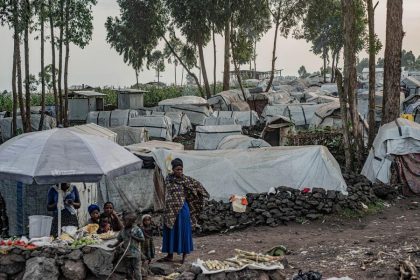Globalisation and the world order in the aftermath of the Second World War left the international community divided into two major economic blocs; Capitalism and Socialism.
Capitalism was allied behind the United States of America (USA) while socialism was led by the United Socialist Soviet Republic (URSS).
Capitalism is an economic system in which a country’s business and industry are controlled and run by private owners for profit.
On the other hand, socialism is a political and economic theory based on the belief that everyone has equal rights to a share of their country’s wealth and that the government should own and control the main industries in trust of the citizens.
Whereas under the capitalistic system, the government does not intervene in the management of private businesses, socialism provides for the government to manage all main businesses.
And so were the majority African countries, because the leading political parties had failed on producing genuine ideologies, made in Africa and for Africans, meant for solving local problems.
The reality was that; Africa’s independence was practically compromised by the then dominating political ideologies. Africa was decolonised but never became independent.
The colonial masters effectively remained the architects of local politics, either directly or otherwise.
When the RPF-Inkotanyi was created back in 1987, the two economic and political blocs were still active.
And it was the “cold war” period. Every political organisation had to align itself behind one of the two. In spite of this, the RPF-Inkotanyi chose an ideology that was unique and genuine in nature.
That originality sustained it through years of hardship.
Now that the RPF-Inkotanyi is in power and drives national development programmes, it has opted for governance systems that leave no one behind.
And this principle applies across all sectors, public and private.
Efforts are geared towards inclusive governance and economic development, and social protection guides all government interventions. That is the essence of citizen-centered governance.
Agriculture contributes 30 per cent of the national gross domestic product, down from 90 per cent 20 years ago. That is trend and points to transformation from an agriculture-reliant economy to one that’s supported by several sectors including services and industries.
It was important to invest in increasing production before embarking on regulating commodity prices. In fact, it is hard for any government to regulate a non-existing product.
Thanks to both public and private investments, Rwandans have reason to smile today. Rwanda is a food secure country. It can produce enough for consumption and surplus for exports.
The challenge today is connecting produce with markets, but it is also an opportunity. Rwanda is a hunger free country.
Farmers need to be protected to ensure agriculture becomes a profitable business. If the Government fails to do so, farmers would disinvest and it would be a big problem.
Business also needs to be protected and regulated to ensure return on investment in a free market.
A conducive environment is a prerequisite to maximise profit at a minimum cost, pay taxes, and for low income earners to afford basic needs on their own.
This can only be achieved with people-centered government interventions through incentives and pricing regulation.
Given that the population keeps growing and with it increase in demand for consumption, some commodity prices should be regulated as is done for some public utilities.
If water, electricity and transport prices are regulated, why not the prices of beans, maize and Irish potatoes which make the core business for more than 70 per cent of the Rwandan population?
And, finally, consumers need to be protected to ensure that middle and lower classes afford basic commodities in their daily life.
The reality has been that, for long, commodity prices were not regulated. And it was very hard to establish whether the sector was profitable or not, because all was about speculation.
In a bid to professionalise agriculture and enhance supply and value chain management as well as increase productivity and link agriculture produce with markets, authorities have embarked on substantive sector reforms. But this is not without challenges.
After issuing directives on the applicable prices for Irish potatoes, the Government has recently directed minimum prices for maize and beans.
As for enforcement mechanisms, contracts were signed with major players; East African Exchange, Rwanda Grains Cereal Corporation, Ministry of Agriculture and SARURA (for maize and beans); and MINIMEX, AIF Ltd and Bugesera Agri-Business Co Ltd for maize.
The minimum price shall be Rwf210 a kilogram for maize and Rwf280 a kilogmram for beans. Indeed, prior contracts with rates lower than the set prices should be revised accordingly.
Yet regulation is one thing and enforcement another. Enforcement should indeed be a shared responsibility.
Middle men will continue to speculate but farmers who need money should be forward looking and think twice before selling their harvest.
As the Kinyarwanda saying goes; “imiraguzi y’ibishyushye ntimenya ko ibyaraye biryoha” (loosely, “don’t spend all you have today because it might be sweeter tomorrow”).
Much as post-harvest management is important, pricing regulation for basic commodities such Irish potatoes, maize, beans and milk is key for inclusive governance and social protection.
Development can only be sustainable if citizens are equally protected. This does not apply only for freedoms, but also for basic needs. Will the private sector and the elite understand and embrace these reforms? Hopefully they will.
LADISLAS NGENDAHIMANA
The writer is a Kigali based political analyst and member of the Pan-African Movement-Rwanda Chapter










